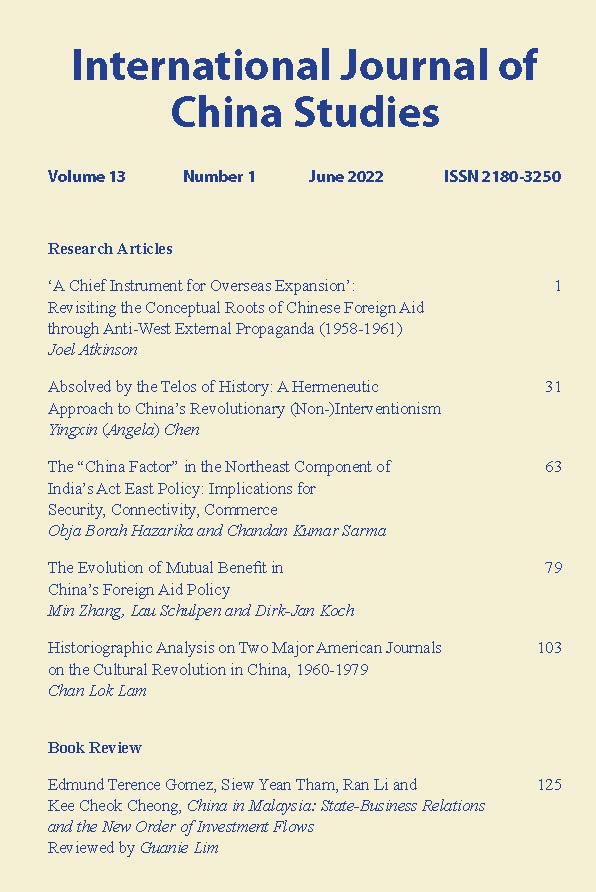The Evolution of Mutual Benefit in China’s Foreign Aid Policy
Keywords:
: Foreign aid, mutual benefit, ‘Eight Principles’, Four Principles, Foreign Aid White Paper, ChinaAbstract
Explicitly stating that its aid giving is based on the principle of mutual benefit is a distinctive feature of China’s foreign aid. How the mutual benefit principle is interpreted in China’s aid policy and why it remains perhaps the most durable aid principle over time is worth investigating. By comprehensively reviewing Chinese policy briefs and reports, white papers, government documents and speeches, this article finds that while mutual benefit has been a basic principle, the Chinese government’s statement and its role in the aid policy has continuously varied over the years. During Mao’s period, the mutual benefit was introduced as a basic principle but
its importance was limited due to the country’s policy statement indicating more the beneficiaries’ benefit. Then after the Reform and Opening policy in 1978, mutual benefit moved to the centre of China’s aid policy statement. Following the turn of the new century, particularly after 2011, China’s aid policy again pays more attention to recipient interest, and the importance of stressing mutual benefit decreased. The flexible use of mutual benefit is an important characteristic while it has remained a central element. Additionally, because self-interest is an integral part of mutual benefit, it fits with China’s pragmatic thinking on foreign aid, legitimizes the goal of China pursuing economic interests, softens the tone of China pursuing its political interests and to some extent alleviates the domestic critics on China’s aid relations. The main conclusion is that Chinese aid would benefit from more conceptual clarity with respect to mutual benefit and a more stable application over time.

